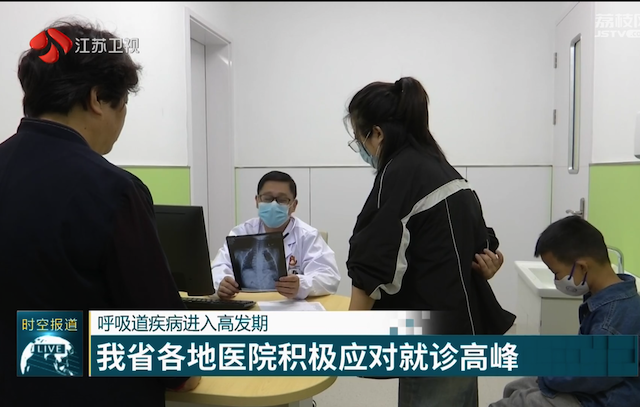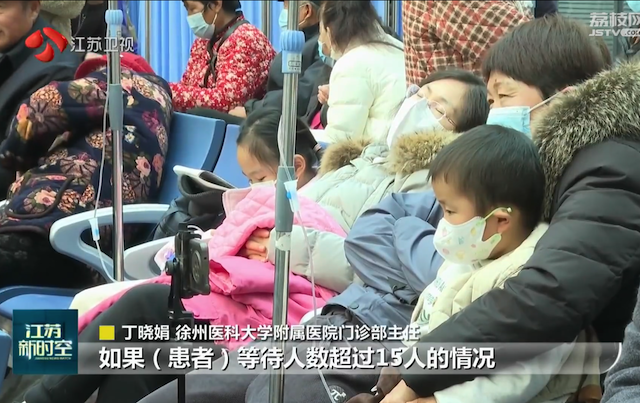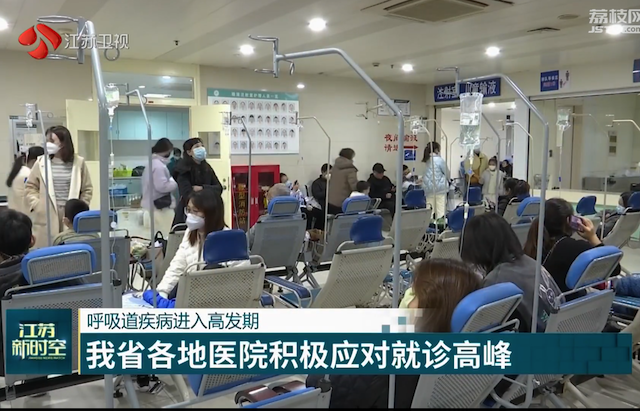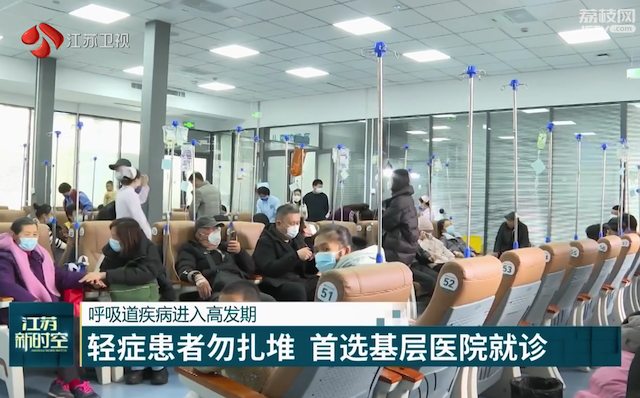East China’s Jiangsu province has recently experienced a high incidence of respiratory infectious diseases. Hospitals at all levels in the province have made every effort to respond to the peak of medical visits and ensure that patients receive medical service. Doctors remind that in the case of multiple respiratory diseases, it is even more important to take preventive measures and scientific diagnosis and treatment.

Monitoring data shows that since October, China has suffered from influenza, mycoplasma pneumoniae infection, syncytial virus infection, COVID-19 and other respiratory diseases.
Children are more susceptible to virus invasion due to their underdeveloped immune system and weak resistance.
To cope with the peak demand for pediatric patients, hospitals across the province have opened more night clinics, increased the allocation of doctors, and optimized treatment processes to ensure the opening of as many clinics as possible.
“An extended evening shift has been arranged, where patients will continue to attend consultations without rest at noon to relieve the pressure. During peak hours, two to three additional night specialist clinics will be added, which will be extended until 10pm at night,” said Ni Huiping, Director of Pediatrics at Changzhou First People's Hospital.

“We have opened daily outpatient clinics for pediatrics, respiratory care, and fever. If the number of patients waiting exceeds 15, we will promptly increase our mobile consultation rooms and dispatch more doctors and nurses,” said Ding Xiaojuan, Director of Outpatient Department of Xuzhou Medical University Affiliated Hospital.
Experts suggest that children with mild illnesses should first seek medical treatment at primary healthcare institutions or pediatrics departments of comprehensive hospitals. If the high fever persists for more than three days, or if they have symptoms such as ultra-high fever above 40 degrees, wheezing, and difficulty breathing occur, it is necessary to seek medical attention as soon as possible.

“If you encounter a common cold and fever, you can observe it at home for two to three days. If you have already gone to the hospital for testing and have a clear understanding of the cause of your fever and cough, it is not desirable to seek medical attention twice or three times. If the child's mental state is okay, it is recommended to observe closely at home,” said Tian Man, Chief Physician of the Respiratory Department at Nanjing Children's Hospital.
In addition to children, many adults have been infected with respiratory diseases recently, making outpatient visits of respiratory departments in many hospitals at a high level, and some patients have suffered from mixed infections of mycoplasma, COVID-19 and other viruses.
Experts remind that the elderly with cardiopulmonary disease, diabetes patients, cancer chemotherapy patients and other people with low immunity should be well protected at this time of the year.

“We suggest that elderly people should appropriately reduce their visits to densely populated areas to reduce the chances and likelihood of infection. When staying at home, it is important to open windows to maintain good indoor air circulation and reduce the proliferation of viruses,” said Yao Xin, Chief Physician of the Respiratory and Critical Care Medicine Department at Jiangsu Provincial People's Hospital.
According to the monitoring by the disease control department, Jiangsu has reported a continuous increase in the positive rate of influenza virus, and the peak of infection has not yet arrived. At this time, influenza vaccination is still effective, especially for children, the elderly, and those with underlying diseases, making it necessary for them to get vaccinated as soon as possible.
“This wave of influenza will last until mid-December and January to reach its peak, and according to the temperature in Jiangsu, it will drop below non-epidemic levels by around March. We recommend getting vaccinated against influenza during the epidemic season. Antibodies can be established within at least two weeks or a month to prevent later infections,” said Xu Ke, Chief Physician of the Emergency Transmission Department of Jiangsu Provincial Center for Disease Control and Prevention.





